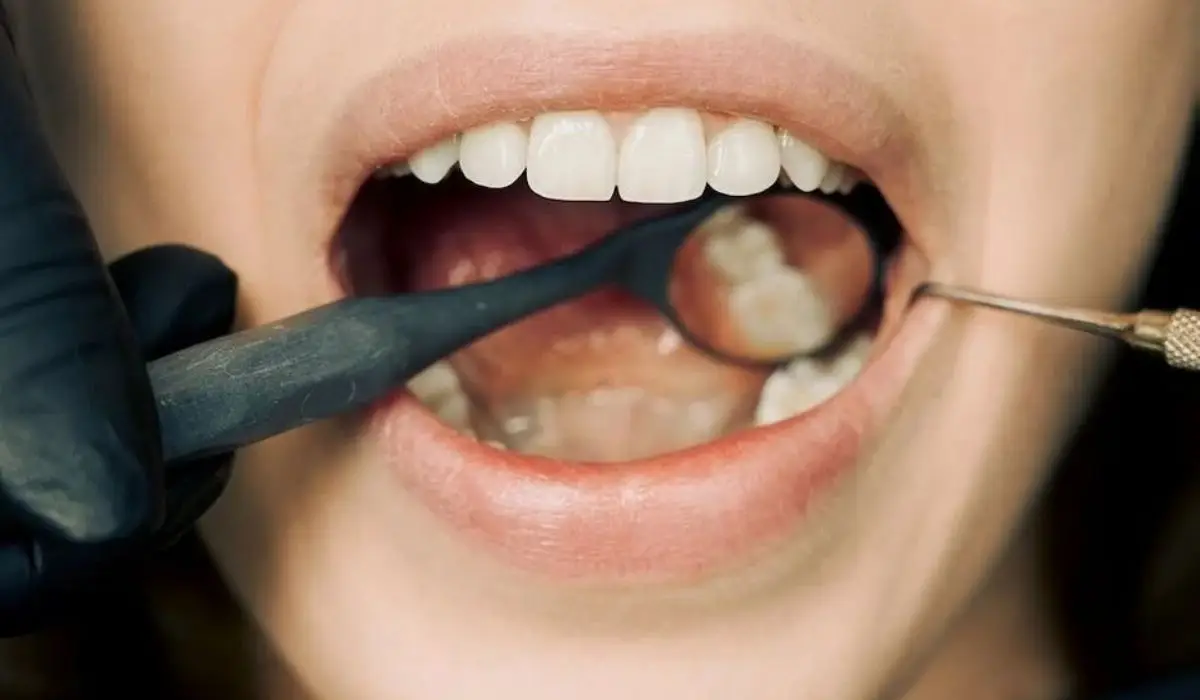
General dentistry is the cornerstone of oral health care, encompassing everything from routine cleanings to complex restorative procedures. It’s the first line of defense in maintaining a healthy smile, and it’s where you’ll find the expertise and care you need for your teeth and gums. At Schaumburg Dentistry, we’re committed to providing top-notch dental care tailored to your individual needs. With over 20 years of experience, our team is here to guide you through your dental journey.
Whether you’re looking to schedule an appointment, explore our wide array of services, or even find a new home with our for sale link, we’ve got you covered. Don’t just take our word for it; see what our satisfied patients have to say in our reviews. Our FAQs are here to provide the answers you need. Call us now at (847) 985-8100 or click the links above to learn how our expert team can make your dental care experience exceptional.
General dentistry is the cornerstone of oral health, providing comprehensive care that addresses both the prevention and treatment of a wide range of dental conditions. Here’s an overview of the services typically offered in general dentistry:
Regular check-ups are essential for maintaining oral health. During these visits, dentists perform thorough examinations to detect potential issues and dental hygienists provide professional cleanings to remove plaque and tartar.
It offer detailed images of teeth, bones, and soft tissues, aiding in the diagnosis of hidden dental problems, from cavities to impacted teeth.
When cavities are detected, dentists restore the tooth’s integrity using various filling materials, including tooth-colored composites and traditional amalgam.
This procedure is employed to treat infected or severely damaged teeth, removing the affected pulp and sealing the tooth to prevent further issues.
Some general dentists offer treatments for sleep apnea, providing oral appliances that can improve airflow during sleep.
Addressing gum diseases in their early stages is crucial. Treatments range from deep cleanings (scaling and root planing) to more advanced periodontal therapies.
For patients experiencing jaw pain, clicking, or other TMD symptoms, various treatments can help alleviate discomfort and improve jaw function.
Regular screenings for oral cancer can lead to early detection and more effective treatment, increasing the chances of a positive outcome.
These preventative measures are often recommended for children and adolescents to protect teeth from decay, but they can also benefit adults.
General dentists often offer basic cosmetic procedures such as teeth whitening, bonding, and veneers to enhance the appearance of one’s smile.
Many general dentists are trained to perform minor surgical procedures like tooth extractions, especially when it comes to wisdom teeth.

Some general dentists may offer basic orthodontic treatments, including traditional braces or clear aligners, to correct misaligned teeth.
While general dentists provide a wide range of services, there are times when a patient might need specialized care. In such cases, a general dentist can provide referrals to specialists such as endodontists, oral surgeons, or orthodontists.
By offering diverse services, general dentists can address each patient’s unique needs, ensuring healthy smiles for people of all ages.
The journey to becoming a general dentist is rigorous, demanding both academic excellence and hands-on clinical experience. Here’s an overview of the typical educational and qualification pathway in general dentistry:
Before entering dental school, aspiring dentists typically complete a bachelor’s degree, often in a science-related field such as biology or chemistry. However, some dental schools may admit students with at least two to three years of undergraduate coursework, provided they’ve met the prerequisite courses.
To be considered for dental school, candidates must take the DAT, a standardized exam assessing their knowledge in natural sciences, perceptual ability, reading comprehension, and quantitative reasoning.
Once admitted, students embark on a four-year program leading to a Doctor of Dental Medicine (DMD) or Doctor of Dental Surgery (DDS) degree. Despite the different names, the curriculum and outcomes for both degrees are essentially the same. The first two years typically focus on foundational sciences, including anatomy, biochemistry, and physiology, combined with introductory clinical experiences. The latter two years emphasize clinical practice, where students treat patients under the supervision of licensed dentists.
After graduating, dentists must obtain licensure to practice in their respective states. This usually involves passing the National Board Dental Examination (NBDE), which is split into two parts: a written exam and a clinical exam. Additionally, some states may have their own specific exams or requirements.
General dentists play a vital role in maintaining oral health and overall well-being. Their responsibilities are multifaceted, encompassing a broad spectrum of care. Here’s an in-depth look at the duties and benefits of general dentists:
General dentists emphasize preventive measures to help patients avoid dental problems. This includes educating patients about proper oral hygiene, providing regular cleanings, applying sealants and fluoride treatments, and conducting routine examinations to detect issues early.
They are skilled in diagnosing oral diseases and conditions, utilizing tools like X-rays and clinical examinations. They develop individualized treatment plans to address each patient’s unique needs based on their findings.
When dental problems arise, general dentists provide restorative treatments such as fillings, crowns, bridges, and root canals to repair or replace damaged teeth.
Many general dentists offer cosmetic services like teeth whitening, veneers, and bonding to enhance the appearance of patients’ smiles.
Some general dentists perform minor surgical procedures like tooth extractions and implant placements.
Basic orthodontic treatments, including braces and aligners, may be provided by general dentists to correct misaligned teeth.

General dentists often handle dental emergencies, providing immediate care for broken teeth, severe pain, or infections.
General dentists coordinate with dental specialists when specialized care is needed, ensuring that patients receive the appropriate treatment.
They engage in continuous professional development to stay abreast of the latest dental technology and techniques advancements.
Here are the benefits of General Dentists:
General dentists are equipped to handle a wide variety of dental needs, making them a one-stop destination for most oral health care.
By prioritizing preventive care, they help patients maintain healthy teeth and gums, reducing the risk of more serious problems down the line.
General dentists often build long-term relationships with their patients, allowing for personalized care that considers the patient’s overall health, preferences, and lifestyle.
Typically more accessible than specialists, general dentists are often available for regular appointments and unexpected dental emergencies.
By addressing dental issues early and focusing on prevention, general dentists can often save patients time and money in the long run.
General dentists consider the entire health picture, recognizing how oral health is interconnected with overall well-being. They often collaborate with other healthcare providers to ensure comprehensive care.
The role of a general dentist is multifaceted and essential to the health of individuals and communities. Their extensive training and diverse skill set enable them to provide comprehensive care that addresses immediate dental needs and contributes to their patients’ long-term health and quality of life.
In essence, general dentistry is the foundation of oral health, offering a comprehensive care approach that spans prevention to restoration. General dentists have the knowledge and skills to address many dental needs, ensuring that patients maintain optimal oral health throughout their lives. If you’re seeking top-tier dental care, look no further than Schaumburg Dentistry. Our dedicated team is here to provide a wide range of services tailored to your unique needs.
Curious about what our patients have to say? Dive into our reviews and see the difference we’ve made in countless smiles. Our FAQs are a great resource for any questions or to learn more about general dentistry. Ready to embark on a journey to a brighter, healthier smile? Schedule an appointment today or call us at (847) 985-8100. Your smile is our passion; we’re here to ensure it shines bright.
Various factors, including poor oral hygiene, certain foods, dry mouth, or medical conditions can cause bad breath. Regular brushing, flossing, tongue cleaning, and staying hydrated can help prevent it.
Electric toothbrushes can be more effective in removing plaque for some people, especially those with limited dexterity. However, with proper technique, manual toothbrushes can be just as effective.
Modern dental X-rays use minimal radiation and are considered safe. Protective measures, like lead aprons, further reduce any risk.
Gum disease, or periodontal disease, is an inflammation of the gums. Early stages can often be treated with professional cleanings, while advanced stages might require surgical procedures.
It’s recommended to replace your toothbrush or toothbrush head every 3-4 months or sooner if the bristles are frayed.
Dental implants are titanium posts surgically placed into the jawbone to replace missing tooth roots. They provide a stable foundation for replacement teeth.
Bleeding gums can be a sign of gingivitis or early gum disease. Maintaining good oral hygiene and consult a dentist if the problem persists is essential.
Chronic teeth grinding can lead to various issues, including tooth wear, jaw pain, and headaches. A dentist can recommend treatments like night guards to address the problem.
In-office whitening treatments are typically stronger and yield faster results. At-home kits are more gradual and can be done at your convenience, but following the product’s guidelines is essential.
Regular dental check-ups, a balanced diet, fluoride treatments, and good oral hygiene practices like brushing and flossing are key to protecting teeth from cavities.